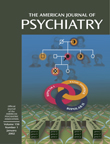Written by psychologists for “psychologists, sociologists and others concerned with the nature and impact of stereotyping and discrimination,” this thought-provoking, in-depth volume resulted from a guided discussion meeting of invited world authorities at Dartmouth’s Minary Center.
The book is divided into three sections: The Perceiver, The Stigmatized, and The Social Interface, each with four or five chapters concerning distinct major subtopics, e.g., chapter 5, “Ideology and Lay Theories of Stigma: The Justification of Stigma,” chapter 8, “The Hidden Costs of Stigma,” and chapter 13, “Stigma and Self-Fulfilling Prophecies.” The authors go far beyond delineating the ancient Greek practice of burning a mark or brand, i.e., a stigma, into a criminal or slave’s skin or the American Puritan use of the scarlet A. They deal with issues of stereotyping and prejudice experienced by individuals and groups of different sex, gender role, age, sexual orientation, religion, race, ethnicity, physical traits, and sociocultural background, which result in far-reaching social and psychological consequences and psychiatric symptoms and syndromes (e.g., posttraumatic stress disorder).
The goals of their study of stigma within the “larger context of general social-psychological processes” was based on three basic dimensions: 1) perceiver (the stigmatizer) and target (the victim), 2) personal and group-based identity, and 3) affective, cognitive, and behavioral responses.
The editors’ premise is quite challenging: “from the social psychology standpoint,” the authors consider “stereotyping normal, a result of people’s cognitive abilities and limitations and of the social information and experiences to which they are exposed.” Furthermore, they argue that the “process of stigmatization can be nonpathological depending on the social context and physical environmental influences.”
As psychiatrists, we know that stigma can threaten psychological and physical health depending on many personal and sociocultural factors. Our overarching understanding of stigma by perceivers and victims affects our understanding of and care for our patients in direct service and in health care policies. Ample discussion is focused on affective, cognitive, and behavioral reactions to stigmatization. This discussion is useful to clinicians who must remain aware of these reactions in clinical care so they can inform their psychiatric patients as the patients experience first-hand the results of stigmatization that affect their treatment and recovery.
This multiauthored text is thought-provoking and insightful; it merits and demands careful reading. All mental health professionals, especially psychiatrists, can glean ideas that will provoke rethinking our frustrations about ongoing stigma toward our patients, their illnesses, and the availability of equitable funding to care for them as well as stigma directed toward us as their competent physician-caregivers. Too often, psychiatrists are stigmatized in that we are not always seen and treated equitably as “real doctors” by physician colleagues, insurance companies, patients, and their significant others.
Finally, the challenge to earnest readers is to strategize effective responses to the fact the authors offer that “stigmatization can be a result of threat, but it requires social communication and sharing on the one hand, and individual distortions and enhancements on the other.” We must not read this important book passively but, rather, take the authors’ visions and act in unison constructively to benefit all.

